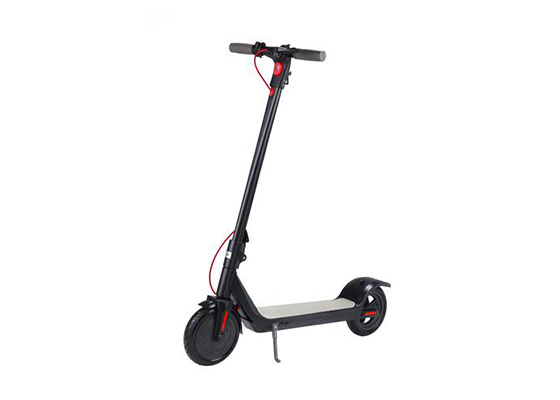There is a special coolant recommended for diesel engines. Coolants play a crucial role in maintaining optimal engine temperature and protecting the engine components from corrosion and damage. Diesel engines, specifically, operate at higher temperatures and produce more heat than gasoline engines, making it necessary to use coolants designed to withstand these conditions.
The special coolant for diesel engines is often referred to as heavy-duty or extended-life coolant (ELC). It is formulated with additives that provide enhanced protection and performance for diesel engines.
key features and benefits of the special coolant for diesel engines:
Heat Transfer: Diesel engines generate higher levels of heat, and the coolant must effectively transfer this heat away from critical engine components. The special coolant has excellent heat transfer properties to ensure efficient cooling and prevent overheating.
Corrosion Protection: Diesel engine coolants contain corrosion inhibitors that protect the engine’s metal surfaces from rust and corrosion. Diesel engines are susceptible to cavitation, a phenomenon where coolant bubbles form and collapse, leading to localized damage. The special coolant contains additives that provide superior protection against cavitation erosion.
Extended Service Life: ELCs offer extended service intervals compared to conventional coolants. While conventional coolants need to be replaced every 2-3 years or 30,000-50,000 miles, ELCs can last up to 6 years or 600,000 miles, depending on the manufacturer’s recommendations. This extended service life reduces maintenance costs and downtime for diesel engine owners.
Compatibility: Diesel engine coolants are formulated to be compatible with the materials commonly found in diesel engine cooling systems, such as aluminum, steel, and cast iron. This ensures that the coolant does not cause any adverse reactions or damage to the engine components.
Supplemental Coolant Additives (SCAs): Some diesel coolants require the use of Supplemental Coolant Additives, which are chemical additives that replenish the corrosion protection over time. SCAs help maintain the coolant’s performance and extend its service life. It’s important to follow the manufacturer’s recommendations regarding the use of SCAs if required.
Freeze and Boil Protection: The special coolant for diesel engines provides freeze protection in cold climates and boil-over protection in high-temperature conditions. This prevents the coolant from freezing in low temperatures or boiling and evaporating in extreme heat, ensuring the engine remains within the optimal temperature range.
Water Pump Lubrication: Coolants for diesel engines often include lubricants that protect the water pump’s internal components. The water pump plays a crucial role in circulating the coolant throughout the engine, and the lubricants help minimize wear and extend the pump’s lifespan.
It’s important to note that the specific coolant requirements may vary between diesel engine manufacturers and models. Therefore, it’s essential to consult the engine manufacturer’s recommendations or the vehicle owner’s manual to determine the correct coolant type and specifications for a particular diesel engine.
FAQs:
Can I use regular automotive coolant in my diesel engine?
It is not recommended to use regular automotive coolant in a diesel engine. Diesel engines operate at higher temperatures and have different cooling system requirements. Using the wrong coolant can lead to reduced performance, increased wear, and potential damage to the engine.
How often should I change the coolant in my diesel engine?
The coolant change interval varies depending on the type of coolant and the manufacturer’s recommendations. Conventional coolants typically require replacement every 2-3 years or 30,000-50,000 miles. Extended-life coolants (ELCs) can last up to 6 years or 600,000 miles. Always refer to the engine manufacturer’s guidelines for the specific coolant change interval.
Do I need to use supplemental coolant additives (SCAs) with my diesel coolant?
Some diesel coolants require the use of SCAs to maintain optimal corrosion protection. SCAs replenish the additives in the coolant that may deplete over time. Check the coolant manufacturer’s instructions or the engine manufacturer’s recommendations to determine if SCAs are necessary and how often they should be added.
Can I mix different brands or types of coolant in my diesel engine?
It is generally not recommended to mix different brands or types of coolant in a diesel engine. Coolants may have different formulations and additives, which can lead to chemical reactions and reduced performance. It’s best to stick to a single brand and type of coolant to ensure compatibility and maintain the coolant’s effectiveness.
How do I check the coolant level in my diesel engine?
To check the coolant level, wait until the engine is cool, locate the coolant reservoir (usually a translucent plastic container), and check the coolant level markings on the reservoir. The coolant level should be between the minimum and maximum marks. If the level is low, add the appropriate coolant to bring it to the recommended level.
What happens if my diesel engine runs low on coolant?
Running low on coolant can lead to overheating, which can cause severe engine damage. Coolant helps dissipate heat from the engine, and without sufficient coolant, the engine can overheat, leading to warped cylinder heads, blown head gaskets, or even engine seizure. Regularly monitor the coolant level and address any leaks or low levels promptly.
Can I use water as a coolant in my diesel engine?
While water can technically be used as a coolant, it is not recommended to use water alone. Water has a lower boiling point and lacks the necessary additives and corrosion inhibitors found in coolant. Using water can lead to rust, corrosion, and inadequate protection against freezing temperatures. It’s best to use a proper coolant mixture.
Conclusion
Diesel engines require a special coolant designed to handle the higher temperatures and demands of these engines. The coolant provides effective heat transfer, corrosion protection, extended service life, compatibility with engine materials, and freeze/boil protection. By using the recommended coolant and following the manufacturer’s guidelines, diesel engine owners can ensure optimal engine performance, longevity, and reliability.




